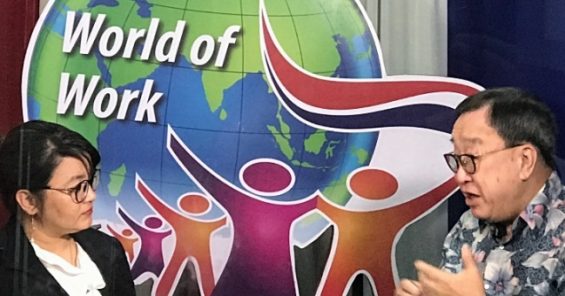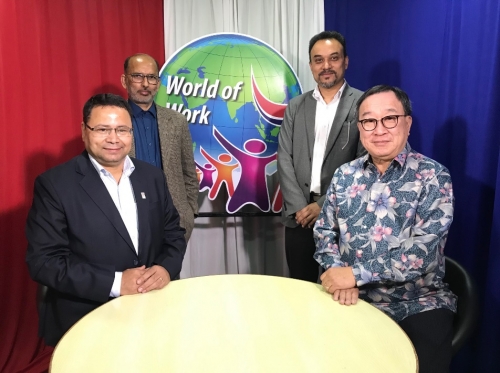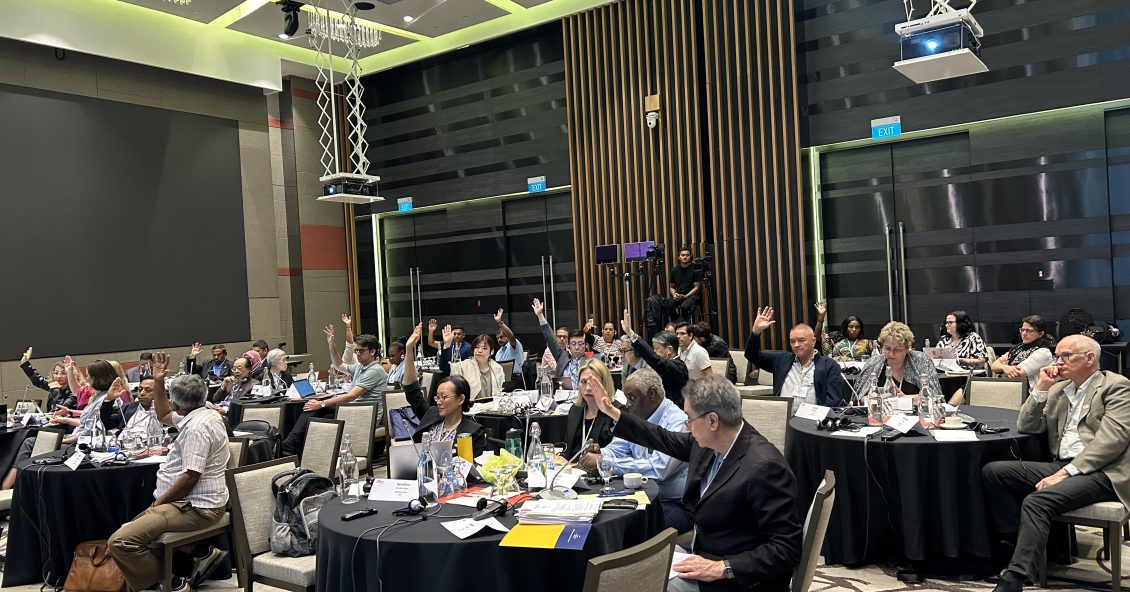UNI Apro Regional Secretary, Christopher Ng, visited Kathmandu from 21 – 22 March to initiate preparations for the 5th UNI Apro Regional Conference to be held in Kathmandu on 20 – 22 November 2019.
During his visit, the Regional Secretary and Rajendra Kumar Acharya, UNI Apro Assistant Regional Secretary met with Mr K P Sharma Oli, the Prime Minister of Nepal to extend an invitation for him to inaugurate the UNI Apro Regional Conference.
Christopher Ng also interacted with the participants of the UNI Apro South Asian Youth Workshop and a Media Team of GEFONT, one of the major national trade unions in Nepal. The media team invited him for an interview where he shared his views on contemporary labour issues focusing on the changing world of work and need of global, regional and national trade union’s response.
Among others, he highlighted the economic growth of Asia and the challenges and opportunities in an increasingly global and interdependent economy driven by the Fourth Industrial revolution and regional economic integration such as the ASEAN Economic Community (AEC), South Asian Association for Regional Cooperation (SAARC) and the Regional Comprehensive Economic Participation (RCEP). He pointed out that the delegates gathered at the 5th UNI Apro Regional Conference will be deliberating on how the trade union movement can work in unity and in partnership with governments and employers to ensure a just transition for all, particularly the workers.
He also commented on the development of Nepal that he observed since his first visit in 1989. In summary, he is confident that Nepal will continue to evolve and grow into a prosperous Nepal for all people and a nation of strategic importance in Asia and the SAARC region in particular.
To succeed, the Nepalese people must be united, confident and determined. The trade union movement, while continuing to champion for the right and dignity for workers, must assume the responsibility to develop the nation by working in partnership with the government and employers.
Christopher also highlighted UNI Apro’s strategic approach to grow trade unions and expand the influence of the trade union movement. He emphasised that the trade union movement needs to be creative in dealing with challenges, particularly those arising from the fourth industrial revolution.
He pointed out that GEFONT’s creativity, as reflected by many of their initiatives, have enabled them to represent their membership effectively, and expanded their influence nationally and even internationally. Their initiative to launch a media programme that broadcasts weekly, covering issues of concern to workers in the world of work, is an example of a creative approach. This program is critical to keep workers and society aware about the challenges confronting workers and society, and to generate support for trade union initiatives to manage the challenges. Such a program becomes more critical especially when commercially driven media are reluctant to report on issues related to workers and the constructive roles of trade unions at work and in society.




